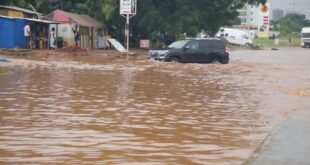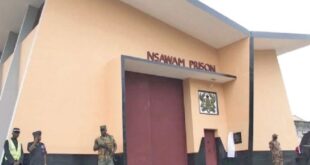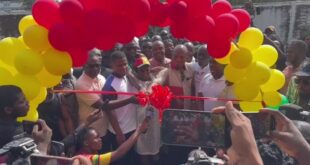The Ashanti Regional Minister, Simon Osei-Mensah, has defended the military involvement in the tensions in Ejura which saw soldiers open fire on protestors, killing two and injuring four.
There have been growing concerns about the use of the military for civil events that ordinarily should be handled by the police.
The incidents that have angered many include the killing of some Ghanaians during the 2020 election, the invasion of Parliament by soldiers, the latest killing of two persons, and the injuring of four others who were protesting at Ejura in the Ashanti Region.
The brutalization of some residents of the Upper West Region in Wa by some soldiers over a supposed stolen phone has also been widely condemned.
But taking his turn before the three-member ministerial committee probing the violence in Ejura, the Ashanti Regional Minister said his decision to request military presence was in line with the Security and Intelligence Agencies Act 1030.
“I’ve used this strategy all this while. This is the first time we have casualties, and I think we should continue with it,” Mr. Osei-Mensah said.
He however added that “there must be more education and communication between the various security agencies as to how to act under such circumstances.”
According to the Minister, the deployment was informed by intelligence that the youth planned to destroy the Ejura Police station and a house belonging to two suspects arrested in connection with the death of a social activist, Ibrahim Muhammed.
“So based on this information, I ordered the police and military to go to the town and maintain law and order, and I did so as Chairman of the Regional Security Council because the law grants me that power,” Mr. Osei-Mensah explained.
The Ashanti Regional Minister, also refused pleas by the committee to disclose the identity of his informant, who he claims had told him of a plot by the angry youth to set the District Police Station ablaze.
The committee chaired by an Appeals Court judge, Justice George Kingsley Koomson, is receiving evidence from witnesses to ascertain the cause of the violence and make recommendations to the President.
Aside from the deaths, the violence also left four other persons with gunshot wounds.
One of the four wounded persons, a 16-year-old boy, has had one of his legs amputated.
Background
The violence occurred during protests that followed the death of Ibrahim Muhammed.
Ibrahim Muhammed, alias Kaaka, died after he was attacked by a mob on June 27 while returning home.
He’s believed to have been killed because he was critical of the government.
The 45-year-old was noted to be vocal on both local and national issues using his Facebook page.
Police in the Ashanti Region have since arrested three persons in connection with his death and put them before the court.
Ibrahim Muhammed was buried on Tuesday, June 29, 2021, alongside the two others who died in the protest.
Source : citinewsroom
 Pink 96.9 fm your life, your music
Pink 96.9 fm your life, your music



